Aug . 29, 2025 01:00 Back to list
Precision Measurement Platform: Advanced Industrial Solutions
Unveiling the Advanced measurement platform for Precision Industries
In the realm of advanced manufacturing and industrial processing, the demand for unparalleled precision and reliability in metrology has never been higher. A modern precision measurement solution represents the pinnacle of industrial measurement tools, providing robust solutions for critical dimensional inspection and quality control. These sophisticated systems are engineered to offer high accuracy, repeatability, and comprehensive data analysis capabilities, essential for sectors where even microscopic deviations can lead to significant operational failures or financial losses. From ensuring the integrity of complex mechanical components to verifying the precise geometry of large-scale industrial structures, a dedicated inspection platform is indispensable. This article delves into the intricate world of these platforms, exploring their manufacturing processes, technical specifications, diverse application scenarios, and the strategic advantages they offer in a competitive global landscape.
The evolution of industrial measurement tools has moved beyond simple gauges and calipers to integrated digital ecosystems capable of 3D scanning, laser interferometry, and coordinate measuring machine (CMM) functionalities. These advanced systems are not merely tools but critical assets that drive operational efficiency, product innovation, and compliance with stringent international standards. Our focus will highlight how a cutting-edge metrology system addresses the complex challenges faced by engineers and quality assurance professionals, offering a pathway to superior product quality and process optimization across various high-stakes industries.
Detailed Manufacturing Process of a Measurement Platform
The creation of a high-precision measurement platform is an intricate process demanding meticulous attention to material selection, advanced manufacturing techniques, and rigorous quality assurance. The foundational integrity of the platform, often composed of high-grade cast iron, granite, or specialized steel alloys, is paramount for achieving exceptional dimensional stability and vibration dampening—critical factors for accurate metrology. This multi-stage process ensures that each unit delivers the uncompromising accuracy and reliability expected of top-tier industrial measurement tools.
I. Material Selection and Preparation
- High-Grade Cast Iron (e.g., GG25, FC300): Selected for its excellent vibration dampening properties, high compressive strength, and machinability. It also exhibits superior thermal stability compared to many other metals, crucial for precision platform inspection. Prior to casting, raw materials undergo strict impurity analysis.
- Granite (e.g., Black Granite): Often used for surface plates due to its exceptional flatness, non-magnetic properties, and resistance to corrosion and wear. Its low thermal expansion coefficient ensures accuracy in varying environmental conditions. Sourced from stable geological formations, it is checked for structural integrity.
- Specialized Steel Alloys: Employed for structural components requiring high rigidity, wear resistance, and specific mechanical properties. These are typically heat-treated to achieve desired hardness and strength.
II. Core Manufacturing Processes
- Casting (for Iron/Steel): High-grade metals are melted and poured into precisely designed molds. This process is critical for forming the robust base structure, ensuring internal stress relief, and achieving initial dimensional accuracy. Subsequent annealing or aging treatments are often applied to further stabilize the material and relieve residual stresses, which prevents deformation over the product's service life. This thermal treatment can take several weeks or months.
- CNC Machining: After casting or initial forming, sophisticated Computer Numerical Control (CNC) machining centers are utilized for precision milling, grinding, and drilling. This stage refines the surfaces, creates mounting points, and achieves the highly accurate geometries required for the metrology system. Tight tolerances, often within single-digit micrometers, are maintained through multi-axis machining and continuous in-process gauging.
- Precision Grinding and Lapping: For critical surfaces, such as those that interact with measurement instruments or workpieces, fine grinding and hand-lapping techniques are employed. These processes achieve exceptional flatness, parallelism, and surface finish, often to sub-micron levels, essential for maintaining the accuracy of an inspection platform. This artisanal skill combined with modern machinery ensures ultimate surface integrity.
- Surface Treatment: Depending on the application, surfaces may undergo treatments like hard chrome plating, nitriding, or specialized coatings to enhance wear resistance, corrosion resistance, and specific functional properties. This is particularly crucial for components exposed to harsh industrial environments, ensuring a prolonged service life and reduced maintenance.
III. Assembly and Calibration
- Component Integration: Various sub-assemblies, including linear guides, drive systems, sensors, and electronic controls, are meticulously integrated onto the machined base. Precision alignment tools and methods, such as laser interferometers, are used to ensure optimal performance and minimal geometric errors.
- Calibration and Testing: Each measurement platform undergoes extensive calibration using traceable reference standards in a climate-controlled metrology lab. This involves geometric accuracy checks, volumetric error mapping (using laser interferometers), and repeatability tests across its entire measurement volume, typically conforming to ISO 10360 standards.
IV. Testing Standards and Certifications
Adherence to international testing standards is non-negotiable for an industrial measurement tool. Our manufacturing processes and final products are rigorously tested and certified to ensure the highest levels of accuracy and reliability.
- ISO 10360 (for CMMs): Specifies acceptance and re-verification tests for coordinate measuring machines (CMMs) which are often integrated into or supported by these platforms. Compliance ensures global recognition of measurement integrity.
- ANSI/ASME B89.3.7: Guidelines for the measurement of flatness of surface plates, ensuring the foundational accuracy that underpins all subsequent measurements.
- ASTM E1152: Standard practice for describing and measuring the performance of scanning surface profilometers, crucial for systems with non-contact capabilities.
- ISO 9001: Certification of the manufacturer's quality management system, ensuring consistent product quality from design to delivery, fostering greater trust and reliability.
V. Service Life and Target Industries
With proper maintenance and calibration, a well-engineered precision measurement solution can provide reliable service for 15-20 years or more, representing a significant long-term investment. Its robust construction ensures minimal degradation of performance over time.
Target industries demanding such high-precision industrial measurement tools include:
- Petrochemical: Inspection of critical pipeline components, valve bodies, and pump housings for dimensional accuracy and corrosion damage, crucial for safety and environmental compliance.
- Metallurgy: Quality control for large castings, forged components, and rolled products, ensuring compliance with specified tolerances and material integrity.
- Aerospace & Defense: High-precision inspection of turbine blades, airframe components, and weapon system parts, where failure is not an option and accuracy directly impacts mission success and human safety.
- Automotive: Quality assurance for engine blocks, transmission cases, and chassis components to meet tight assembly tolerances, impacting vehicle performance, fuel economy, and safety.
- Water Supply & Drainage: Verification of large pipe sections, fittings, and pump impellers for correct dimensions and sealing surfaces, crucial for system integrity, preventing leaks, and ensuring energy efficiency.
- Power Generation: Dimensional checks for turbine components, generator housings, and nuclear facility parts, ensuring safety, optimal performance, and regulatory compliance in high-stakes environments.
VI. Advantages in Typical Application Scenarios
- Energy Saving: By ensuring precise component fit and alignment (e.g., in pumps or turbines), these platforms contribute to reduced friction, optimized fluid dynamics, and improved operational efficiency, leading to significant energy savings over the equipment's lifespan.
- Corrosion Resistance: Utilizing materials like specialized stainless steels or applying protective coatings, the platforms themselves can be designed for use in corrosive environments, or they can facilitate the accurate inspection of corrosion-resistant components, ensuring product longevity in challenging conditions.
- Reduced Rework & Scrap: Early and accurate detection of manufacturing defects through precise platform inspection minimizes costly rework and scrap rates. This significantly improves overall production efficiency, reduces material waste, and boosts profitability.
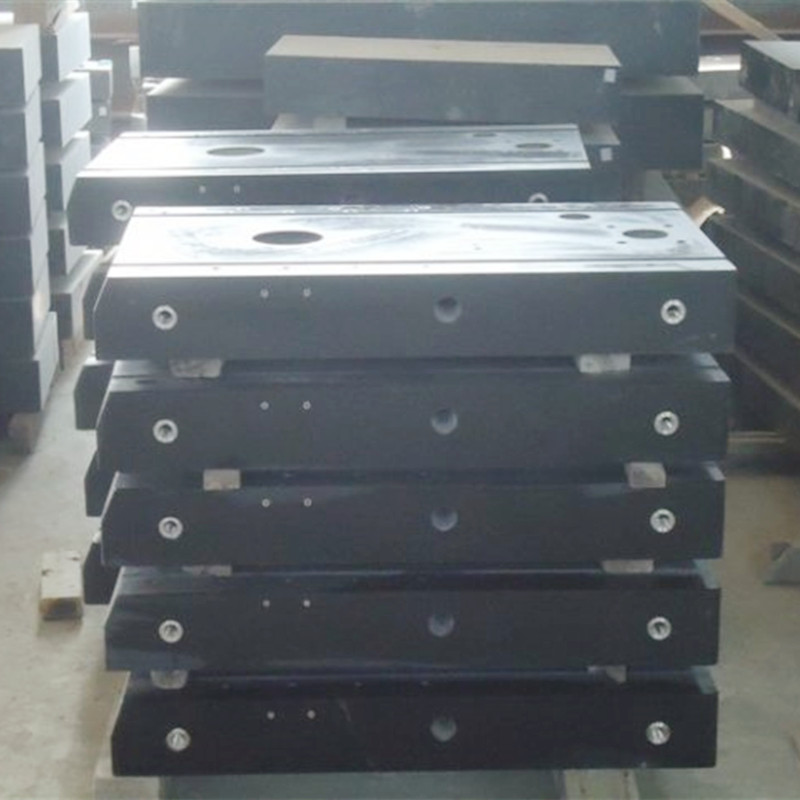
Schematic of a precision measurement platform during assembly.
Industry Trends in Industrial Measurement Tools
The landscape of industrial measurement is continuously evolving, driven by the demands of Industry 4.0, smart manufacturing, and the increasing complexity of engineered components. Several key trends are shaping the future of industrial measurement tools and related systems:
- Integration of Digital Twin and IIoT: The concept of a digital twin—a virtual replica of a physical product or process—is becoming increasingly prevalent. A metrology system integrates with the Industrial Internet of Things (IIoT) to provide real-time data to these digital twins, enabling predictive maintenance, dynamic process control, and virtual prototyping. This allows for continuous optimization and proactive identification of potential issues before they manifest physically.
- Enhanced Automation and Robotics: To cope with high production volumes and minimize human error, automation is being increasingly incorporated. Robotic loading/unloading systems, automated inspection routines, and collaborative robots (cobots) are making measurement processes faster, more consistent, and safer. This leads to higher throughput and reduced operational costs for platform inspection.
- Non-Contact Measurement Technologies: While tactile probes remain essential, optical, laser, and photogrammetry-based non-contact measurement systems are gaining traction. These technologies offer advantages in speed, ability to measure delicate or complex geometries without distortion, and suitability for in-process inspection. Advanced vision systems are now common features of a modern metrology system.
- Artificial Intelligence (AI) and Machine Learning (ML) in Data Analysis: AI/ML algorithms are revolutionizing how measurement data is processed and interpreted. They can identify subtle patterns, predict potential defects, optimize measurement strategies, and even autonomously adjust machine parameters for improved accuracy and efficiency, taking the capability of an inspection platform to new levels.
- Portability and In-Situ Measurement: The trend towards bringing measurement closer to the point of production or even performing it in-situ is growing. Portable CMMs, laser trackers, and handheld 3D scanners offer flexibility for large components or production lines where transporting parts to a dedicated metrology lab is impractical.
- Multi-Sensor Integration: Modern precision measurement solutions often combine multiple sensor types (e.g., optical, tactile, laser) to leverage the strengths of each technology, providing a more comprehensive and accurate picture of component geometry and surface characteristics.
These trends collectively underscore a move towards more intelligent, integrated, and flexible metrology solutions that can keep pace with the increasing demands of modern industrial production.
Technical Specifications and Parameters of a High-Precision Measurement Platform
The performance of a measurement platform is defined by a critical set of technical specifications that govern its accuracy, repeatability, and operational envelope. Understanding these parameters is crucial for selecting the right system for specific industrial measurement tools applications. Each parameter is carefully engineered and rigorously tested to meet stringent performance requirements.
Key Technical Parameters
- Measurement Range (X, Y, Z Axes): Defines the maximum dimensions of a workpiece that can be accommodated and measured. Ranges can vary from hundreds of millimeters for small components to several meters for large industrial parts, directly impacting application suitability.
- Accuracy (MPEe - Maximum Permissible Error of indication for length measurement): This is typically expressed as a formula, e.g., E = (2.5 + L/250) µm, where L is the measured length in mm. A lower MPEe indicates higher accuracy. For example, a high-end system might offer an MPEe of 1.5 + L/300 µm, which is critical for precision engineering.
- Repeatability (MPEp - Maximum Permissible Error of indication for probing): The ability of the system to produce consistent results under the same conditions. Often stated in micrometers (µm), e.g., MPEp = 1.8 µm. This is critical for reliable platform inspection, ensuring that successive measurements yield identical or near-identical results.
- Resolution: The smallest increment that the system can detect or display, typically in micrometers or nanometers. High resolution is essential for resolving fine details and surface textures.
- Load Capacity: The maximum weight the platform can safely support, vital for heavy industrial components. This ensures structural integrity and measurement stability even with large workpieces.
- Operating Environment: Specified temperature range, humidity, and vibration tolerance. High-precision platforms often require controlled environments to maintain optimal performance due to thermal expansion and contraction effects.
- Sensor Technology: Type of probes or sensors used (e.g., touch-trigger, scanning, optical, laser, vision systems), influencing versatility, speed, and suitability for different material types and measurement tasks.
- Software Capabilities: Features such as CAD import/export, GD&T (Geometric Dimensioning and Tolerancing) analysis, statistical process control (SPC), and reporting functions. These software tools transform raw data into actionable insights.
Representative Product Specification Table: Advanced Measurement Solution
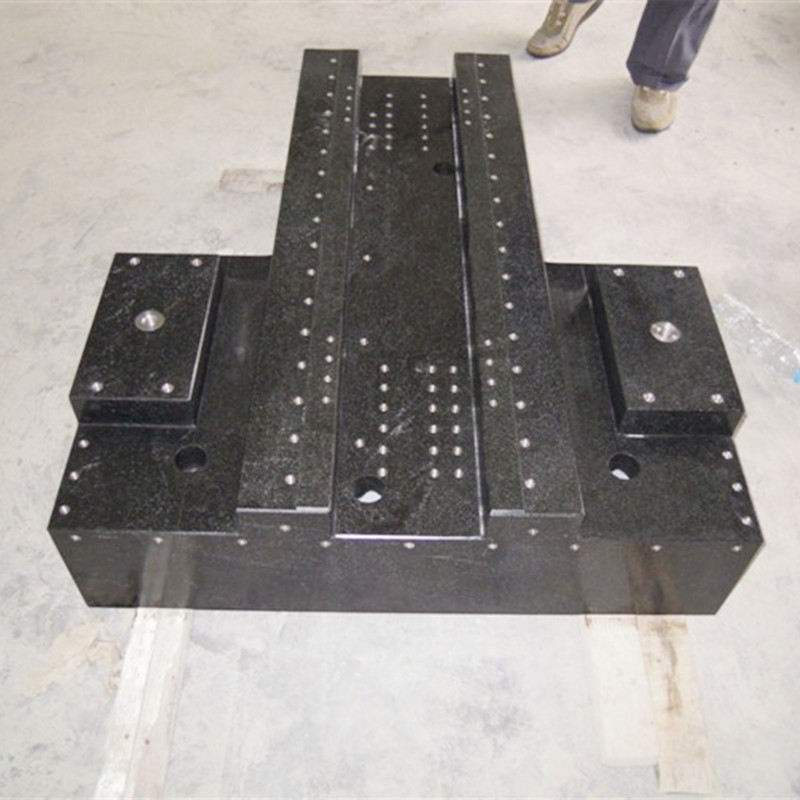
Precision engineering of components for the measurement platform.
Application Scenarios and Industry Impact
The versatility of a sophisticated precision measurement solution allows it to be deployed across a multitude of industries, addressing critical inspection and quality control needs. Its application extends from R&D and prototyping to high-volume production and final product verification, ensuring components meet exact specifications.
- Aerospace Component Verification: Inspection of complex aerospace components such as turbine blades, wing sections, and engine casings. These parts require extremely tight tolerances to ensure aerodynamic efficiency and structural integrity. The measurement platform ensures that critical dimensions, surface profiles, and hole positions comply with stringent aerospace standards (e.g., AS9100).
- Automotive Powertrain and Chassis Inspection: Quality control for engine blocks, cylinder heads, crankshafts, camshafts, and transmission components. In the automotive sector, precision is key for fuel efficiency, performance, and vehicle safety. This inspection platform facilitates rapid and accurate measurement of bore diameters, flatness, parallelism, and gear tooth profiles, crucial for smooth operation and longevity.
- Medical Device Manufacturing: Micro-scale inspection of intricate medical instruments, implants (e.g., hip joints, dental implants), and prosthetic components. Biocompatibility and precise fit are paramount. A precision metrology system with high resolution and non-contact capabilities is essential for these delicate and life-critical applications, ensuring patient safety and device efficacy.
- Heavy Machinery & Industrial Equipment: Dimensional verification of large castings, fabricated structures, and sub-assemblies for construction equipment, mining machinery, and power generation components. These applications often involve large measurement volumes where robust industrial measurement tools are required to handle heavy loads and complex geometries accurately.
- Tool & Die Making: Ensuring the accuracy of molds, dies, and jigs crucial for mass production. Any deviation in these master tools will propagate to thousands of manufactured parts. The platform's inspection capabilities enable rapid and precise verification, reducing lead times and ensuring quality output for subsequent production runs.
- Renewable Energy Sector: Inspection of wind turbine components (blades, gearboxes, hubs), solar panel frames, and hydroelectric power generation parts. The scale and precision required in these sectors benefit immensely from advanced metrology system technology for optimized performance, extended service life, and maximized energy output.
Through these diverse applications, the precision measurement platform demonstrably improves product quality, accelerates time-to-market, and significantly reduces manufacturing costs by minimizing rework and scrap.
Technical Advantages of Our Measurement Platform
Our advanced measurement platform is engineered with several core technical advantages that set it apart in the demanding field of industrial metrology, ensuring superior performance and reliability for B2B clients across various sectors.
- Exceptional Metrological Performance: Achieved through a combination of high-precision linear scales, advanced compensation algorithms (e.g., thermal, volumetric error mapping), and robust structural design. Our systems consistently deliver accuracy and repeatability that often exceed industry benchmarks, providing unparalleled confidence in platform inspection results for critical applications.
- Modular and Scalable Architecture: The design allows for flexible configuration with various sensor types (tactile, optical, laser scanners) and measurement volumes. This modularity ensures that the metrology system can evolve with changing industrial requirements, protecting your investment and providing long-term utility.
- Advanced Vibration Dampening: Employing high-density granite or specialized cast iron bases combined with active or passive vibration isolation systems, our platforms minimize external disturbances. This ensures stable and accurate measurements even in challenging factory environments where precision is paramount.
- Intuitive and Powerful Software Suite: Equipped with industry-leading metrology software that supports full GD&T analysis, feature-rich programming, real-time data visualization, and comprehensive reporting. The software is designed for ease of use while offering sophisticated analytical capabilities, enhancing the efficiency of an inspection platform.
- Robust Construction for Longevity: Built with high-quality, durable materials and precision-engineered components, our industrial measurement tools are designed for continuous operation in demanding industrial settings, ensuring an extended service life, minimal downtime, and a strong return on investment.
- Global Service and Support Network: Backed by a comprehensive global network of certified service engineers, offering rapid response for installation, calibration, maintenance, and technical assistance, ensuring maximum uptime for your critical measurement operations.
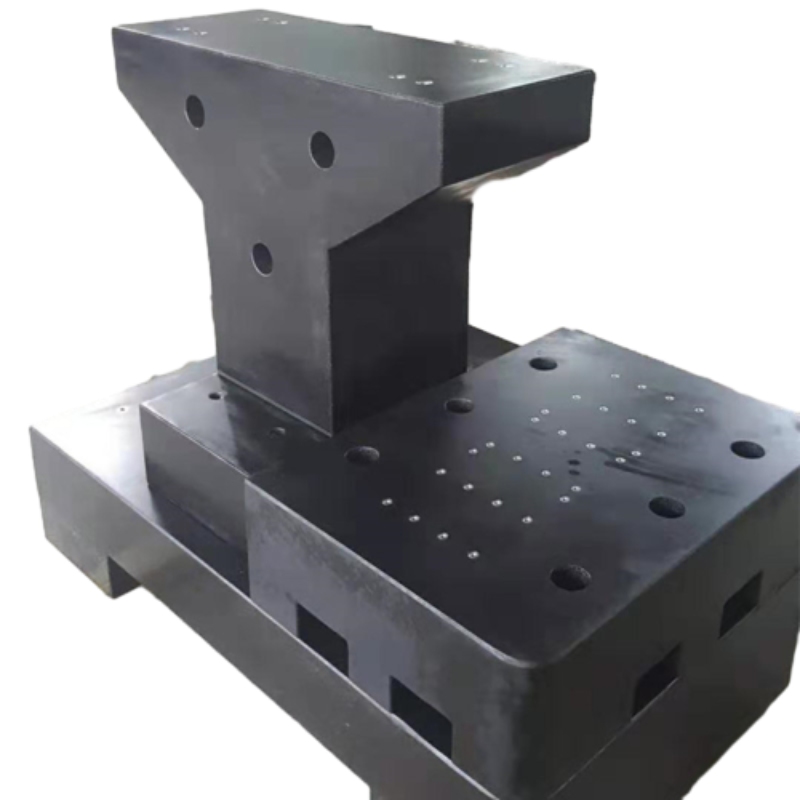
A measurement platform configured for complex part inspection.
Vendor Comparison: Evaluating Measurement Platform Solutions
Choosing the right measurement platform involves evaluating several key factors across different vendors. While many offer advanced industrial measurement tools, differentiators lie in their specific technical capabilities, software ecosystems, support structures, and overall value proposition. Below is a comparative overview highlighting typical considerations for a premium inspection platform versus a standard offering, emphasizing the importance of detailed specification analysis.
Measurement Platform Vendor Comparison
This comparison illustrates that while both types of industrial measurement tools can perform basic functions, the premium metrology solution offers significantly higher precision, flexibility, and long-term operational benefits, crucial for industries where quality and efficiency are paramount and marginal errors are unacceptable.
Customized Solutions for Unique Industrial Challenges
Recognizing that no two industrial applications are exactly alike, we specialize in providing tailored measurement platform solutions. Our engineering team collaborates closely with clients to develop systems that perfectly align with their specific metrology requirements, production environment, and budget constraints, ensuring optimal performance and seamless integration.
Areas of Customization:
- Measurement Volume and Design: Custom-sized work envelopes to accommodate exceptionally large or uniquely shaped components. This includes specialized fixturing and clamping systems integrated directly into the metrology system, ensuring stability for unusual part geometries.
- Sensor Configuration: Integration of specialized probes (e.g., micro-probes for tiny features, high-temperature probes, multi-sensor heads combining optical and tactile technologies) to meet specific material or feature inspection needs, maximizing data collection efficiency.
- Environmental Adaptability: Enhanced insulation and climate control features for operation in harsh factory environments, or specialized corrosion-resistant construction for chemical or marine applications, extending the system's operational lifespan in challenging conditions.
- Automation and Integration: Development of custom automation routines, robotic loading/unloading systems, and seamless integration with existing Manufacturing Execution Systems (MES) or Enterprise Resource Planning (ERP) platforms for a fully connected inspection platform, optimizing workflow and data exchange.
- Software Development: Tailored software modules for specific analysis, reporting, or user interface requirements, streamlining workflows and providing unique insights. This can include specialized algorithms for defect detection or advanced statistical analysis relevant to specific product lines, enhancing data utility.
Our commitment to customized solutions ensures that clients receive not just a product, but a complete metrology ecosystem optimized for their unique operational demands, ultimately maximizing their return on investment in industrial measurement tools. This bespoke approach mitigates risks and enhances competitive advantage.
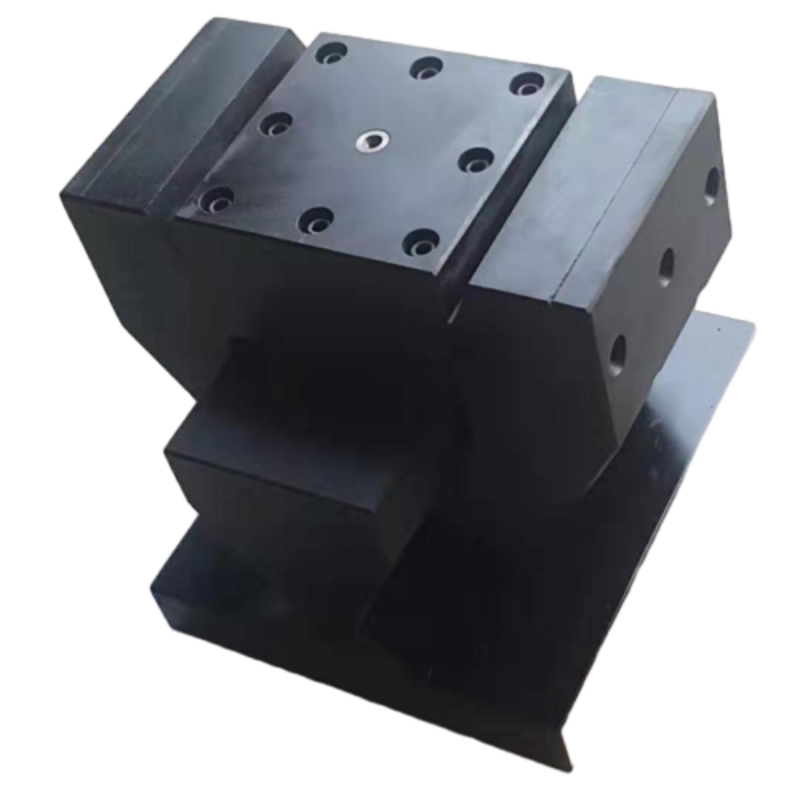
Customized measurement platform for heavy-duty components.
Real-World Application Case Studies
The practical impact of a high-performance precision measurement solution is best illustrated through real-world applications where it has delivered tangible benefits in accuracy, efficiency, and cost savings for our clients.
Case Study 1: Aerospace Engine Component Manufacturer
- Challenge: A leading manufacturer of aerospace engine components faced bottlenecks in inspecting complex turbine blades, requiring sub-micron precision for geometry and surface finish. Their existing industrial measurement tools were slow and prone to operator variability, impacting production throughput and quality assurance.
- Solution: We deployed a customized metrology system featuring a 5-axis scanning probe and integrated laser profiler. The system was capable of full-surface inspection and automatic generation of deviation reports against CAD models, significantly streamlining the process.
-
Results:
- Reduced inspection time by 60%, from 4 hours per blade to 1.5 hours, increasing throughput.
- Improved measurement uncertainty by 25%, significantly enhancing quality confidence and reducing false rejects.
- Reduced rework and scrap rates by 15% due to early detection of machining deviations, leading to substantial cost savings.
Case Study 2: Automotive Powertrain Assembly Plant
- Challenge: An automotive client needed to perform high-speed, 100% inspection of engine block bore diameters and camshaft profiles directly on the production line to prevent defective parts from proceeding to assembly. This required an extremely robust and fast platform inspection solution.
- Solution: We implemented an automated inspection platform with robotic part handling and integrated non-contact optical sensors. The system was designed for robust operation in a factory environment and seamlessly integrated with their MES (Manufacturing Execution System) for real-time data exchange.
-
Results:
- Achieved inline inspection cycle time of less than 30 seconds per engine block, maintaining production speed.
- Eliminated manual inspection errors, leading to a 99.9% quality gate effectiveness, preventing defective parts from reaching consumers.
- Provided real-time feedback to upstream machining centers, enabling proactive process adjustments and continuous improvement.
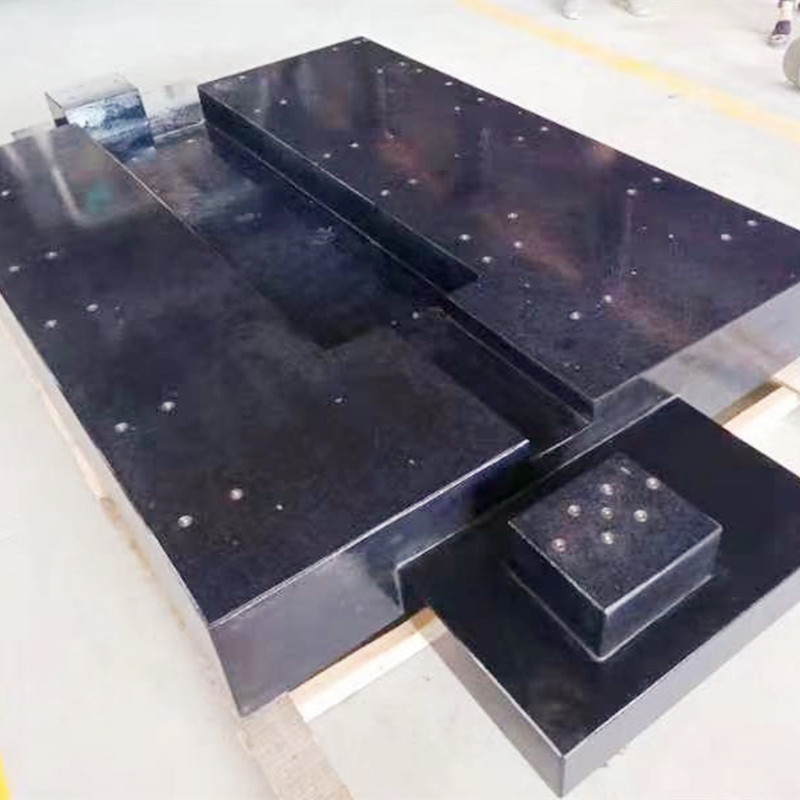
Advanced metrology setup for a diverse range of industrial components.
Frequently Asked Questions (FAQ)
Q1: What is the typical lead time for a custom industrial measurement tool?
A1: Lead times vary significantly based on the complexity and customization level. For standard configurations, expect 12-16 weeks. Highly customized systems requiring extensive engineering and bespoke components may range from 20-30 weeks. We provide a detailed project timeline upon proposal acceptance, ensuring transparency.
Q2: What kind of warranty is offered with your industrial measurement tools?
A2: Our products typically come with a standard 12-month warranty covering parts and labor from the date of installation or acceptance. Extended warranty options and comprehensive service contracts are available to ensure continuous peace of mind and operational uptime for your inspection platform.
Q3: How does your customer support work?
A3: We offer multi-tiered customer support including 24/7 online technical assistance, phone support, and a global network of field service engineers for on-site support, calibration, and preventative maintenance. Our dedicated support portal provides access to documentation, software updates, and training resources. We are committed to maximizing the uptime and performance of your industrial measurement tool.
Q4: Are your platforms compliant with international metrology standards?
A4: Absolutely. All our precision measurement solutions are designed and manufactured to meet or exceed relevant international standards such as ISO 10360, ASME B89, and VDI/VDE 2617. Each system is delivered with a calibration certificate traceable to national and international standards, ensuring authoritative accuracy. Our manufacturing facilities are ISO 9001 certified, reinforcing our commitment to quality.
Q5: Can the platform be integrated with existing factory automation systems?
A5: Yes, our metrology systems are built with open architecture and offer various interface options (e.g., OPC UA, Ethernet/IP, custom APIs) to facilitate seamless integration with a wide range of factory automation, MES, and SPC systems. Our engineering team provides comprehensive support for successful integration projects, ensuring a connected and efficient production environment.
Lead Time, Fulfillment, and Warranty Commitments
Our commitment to clients extends beyond product quality to encompass reliable logistics and comprehensive post-purchase support for every industrial measurement tool. We understand that timely delivery and dependable support are critical to your operations.
Lead Time & Fulfillment
- Transparent Project Management: From order confirmation to final installation, clients receive a detailed project schedule with regular updates, ensuring complete visibility into the manufacturing and delivery process.
- Efficient Logistics: We manage global shipping and customs clearance, leveraging established partnerships to ensure timely and secure delivery of your inspection platform, regardless of your location.
- Professional Installation: Our certified engineers oversee installation and initial calibration at your facility, often within 1-2 weeks of delivery, depending on system complexity. This includes thorough functional testing and initial user training.
Warranty & After-Sales Support
- Standard Warranty: A 1-year comprehensive warranty on all components and labor for your industrial measurement tool, providing immediate peace of mind against manufacturing defects.
- Extended Service Plans: Options for 2, 3, or 5-year extended warranties, including preventative maintenance visits, priority support, and discounted spare parts, ensuring continuous optimal performance.
- Technical Support: Access to a dedicated technical support team via phone, email, and online portal 24/7. Remote diagnostics and troubleshooting are standard services, minimizing potential downtime.
- Training and Education: Comprehensive on-site and virtual training programs for operators and maintenance personnel to ensure optimal use, upkeep, and programming of the precision measurement solution, maximizing its value.
Our global service network ensures that expert assistance is always within reach, minimizing downtime and maximizing the operational lifespan of your critical metrology equipment, securing your investment for the long term.
References & Authoritative Sources
- 1. ISO 10360 Series: Geometrical Product Specifications (GPS) - Acceptance and reverification tests for coordinate measuring machines (CMMs). International Organization for Standardization.
- 2. ASME B89.3.7: Methods for the Measurement of Surface Plate Flatness. American Society of Mechanical Engineers.
- 3. Bush, S. A., & Rimmer, J. B. (2020). Metrology for Industry 4.0: Trends in Digital Measurement and Inspection. Journal of Manufacturing Science and Engineering, 142(11), 110801.
- 4. National Institute of Standards and Technology (NIST) – Dimensional Metrology. www.nist.gov/programs-projects/dimensional-metrology.
- 5. Renishaw plc. (2023). CMM Performance Explained. www.renishaw.com/cmm-performance-explained.
-
Thread Plug Gauge Our Promise of Measurement ExcellenceNewsAug.22,2025
-
Gauge Pin Class Reflecting Quality LegacyNewsAug.22,2025
-
Check Valve Types for High Rise BuildingsNewsAug.22,2025
-
Water Control Valve for Irrigation SystemsNewsAug.22,2025
-
Gate Valve with Soft Seal TechnologyNewsAug.22,2025
-
Y Type Strainer for Oil and Gas ApplicationsNewsAug.22,2025
Related PRODUCTS









